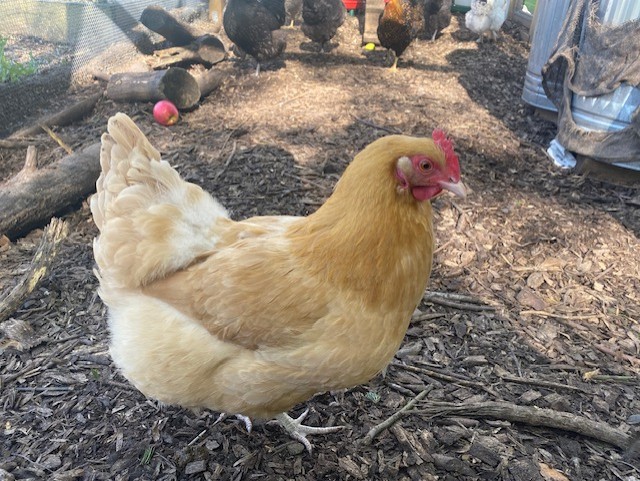For safety and security reasons, I have an enclosed run attached to my
chicken coop for the times that I can't be outside to be available to tend to the hens in their various paddocks. This has
led to a higher level of manure in one spot compared to the lightly fertilized paddocks.
I have observed today that there was a level of hardpan in the run right on the surface. I however forgot to take a picture but I did find one that is only a few months old that shows the sort of development of a wood/dirt layer.

I have decided to just start from a far corner and cultivate the hardpan with a sharp hoe to loosen up everything. It took some elbow grease but at least it is something that can be scratched easier for the girls.

I'm stuck between two approaches to go to from now.
Should I just top off with fresh material (
wood chip/shavings) or would it be advantageous to take the time and sift out the built up
compost before putting in more chip?
I don't NEED any compost at the moment but perhaps having less volume in the run before adding new material would reduce issues?
Let me know your thoughts.


